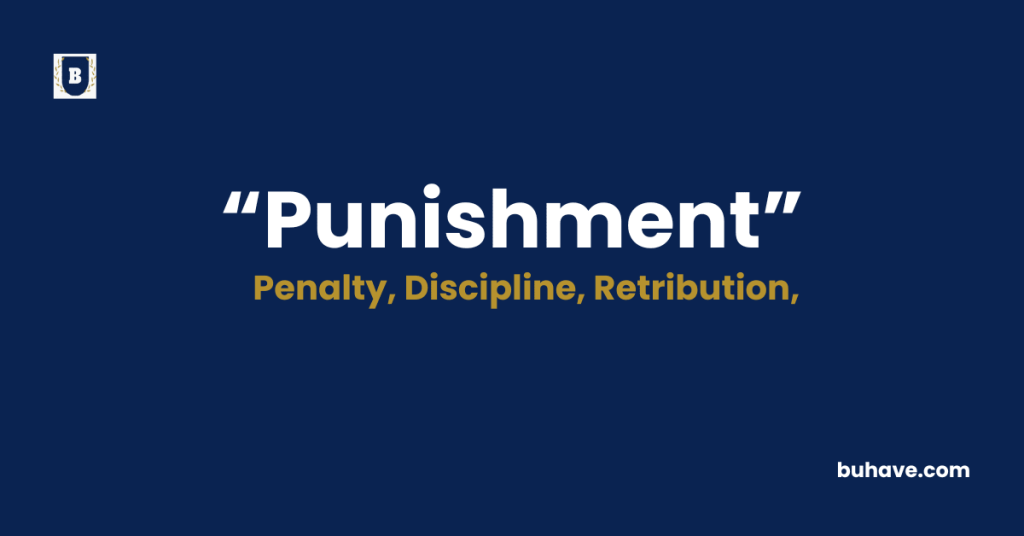The word ‘Punishment’ (Noun) refers to the imposition of a penalty on someone for wrongdoing, misbehavior, or breaking rules. It serves as a consequence meant to correct, discipline, or deter undesirable actions. This guide will help you understand its full meaning, origins, examples, and usage in various contexts.
Punishment Explained in Depth
A complete and detailed guide to the word ‘Punishment’ including meaning, definition, examples, etymology, synonyms, and antonyms.
Meanings of Punishment
‘Punishment’ means a consequence or penalty imposed for an offense or wrongdoing. It can be physical, emotional, legal, or social, aimed at enforcing rules or discouraging repeat behavior.
Definition
‘Punishment’ is defined as the act of inflicting a penalty or consequence on someone as retribution for an offense, misdeed, or violation of rules or laws.
Etymology
The word “Punishment” originates from the Latin word punire, meaning “to punish” or “to penalize,” which in turn comes from poena, meaning “penalty” or “pain.” It entered English in the late Middle Ages via Old French.
Example Sentences
- The student received detention as punishment for skipping class.
- Many argue that harsh punishment does not always lead to better behavior.
- The criminal faced severe punishment under the law for his actions.
Punishment Synonyms
- Penalty
- Retribution
- Discipline
- Sanction
- Correction
- Castigation
- Chastisement
- Justice
- Consequences
- Rebuke
Punishment Antonyms
- Reward
- Pardon
- Forgiveness
- Mercy
- Leniency
- Exoneration
- Amnesty
- Gratification
- Compensation
- Approval
FAQs about Punishment
Here are some frequently asked questions (FAQs) about the word “Punishment”
1. What does “punishment” actually mean?
“Punishment” is the act of imposing a penalty or consequence on someone for doing something wrong or breaking a rule.
2. Is punishment always physical?
No. Punishment can be physical, verbal, emotional, or legal, depending on the context and culture.
3. What is the purpose of punishment?
Punishment is meant to correct behavior, uphold justice, and deter future wrongdoing.
4. Can punishment be positive?
In psychology, “positive punishment” involves adding a stimulus to reduce a behavior, but generally, punishment has a negative connotation.
5. Is punishment effective?
Its effectiveness depends on fairness, consistency, and the individual. Harsh punishment may not always produce better results.

















